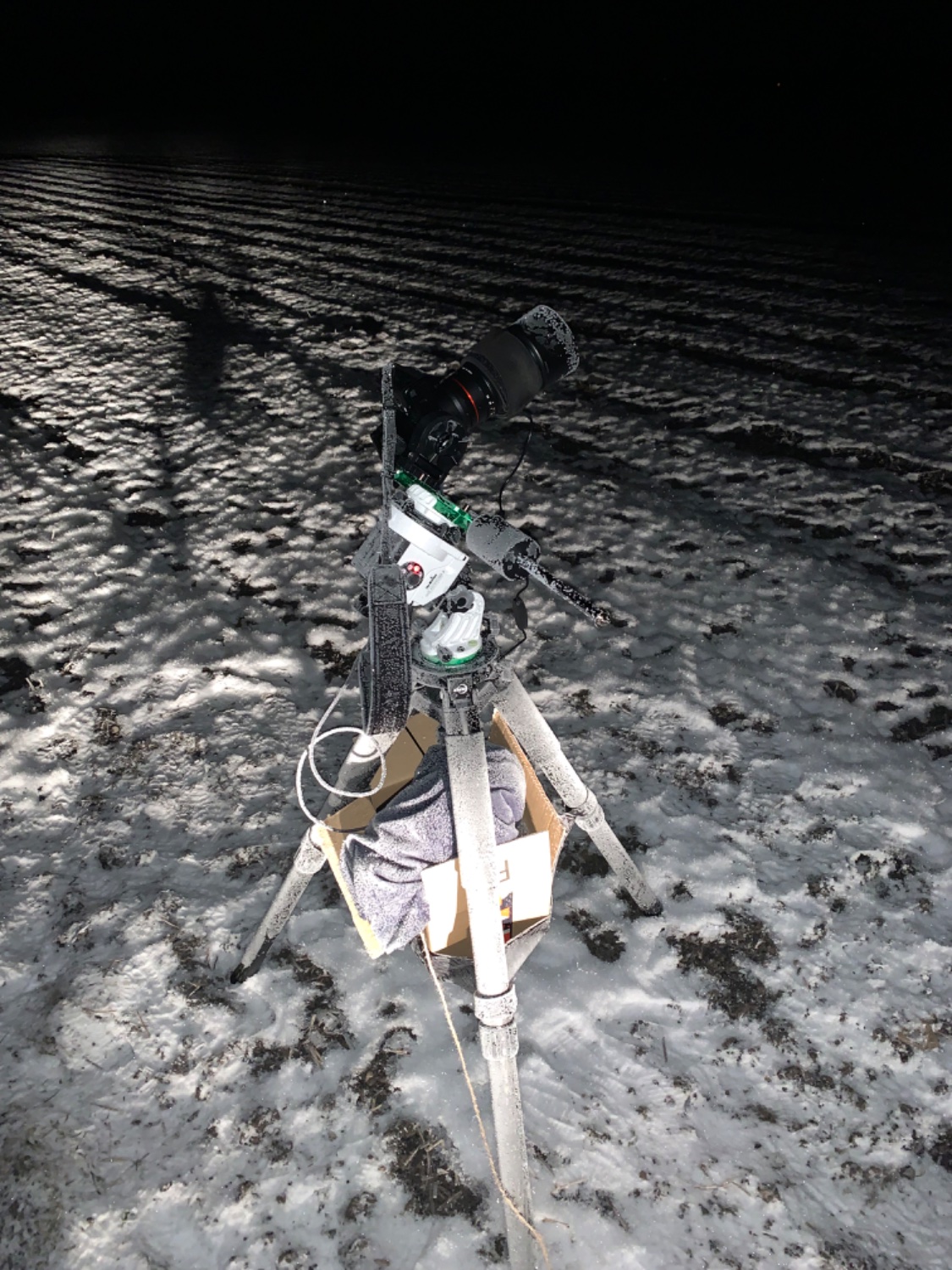Thank you very much for responding!
bistdunarrisch
Wow this looks amazing. If you don‘t mind I have some questions.. I assume this was shot with an Ha filter to reveal the structure on the surface, otherwise it would be all white? Also what is the need of 10% of the images? Do you stack them? One exposure should have enough signal shouldn’t it? And last but not least what focal length does your telescope have?
Well thank you very much! I‘m still a beginner myself, for our first tries the videos from Nebula Photos on youtube helped a lot, especially the workflow in Siril. This is only our second serious attempt, so I don’t know if my help is of any value, but I‘ll try anyway.
Yes we used a heater for the lens, the complete setup was covered in ice, so this helped a lot.

Yes I did make calibration frames but didn’t use them as I got problems with the result. I forgot that I shot with the dual narrowband filter and used an lcd for flats.. But GraXpert handled the very strong gradiant quite well.
What I think helped the most in terms of quality and artifacts was the constant use of dithering. As the star adventurer 2i obviously can only dither in one axis we dithered manually on the other every 10-15 mins. Hope this helped!
Yes it really is for that price point!
Star removal helps to edit the stars and the galaxy separately. At the end I added them back in
Thanks!
This was shot from a Bortle 5 zone. Also this was shot near a city so the gradiant was quite strong
Absolutely!
No not really, but I choose it because I didn't know what the precision of the tracker was as I never used one before. But as I know now with only 135mm focal length I can use well above one minute.
Using a longer exposure time is normally preferred because you don't get so much images to process. But as always there are exceptions (lucky imaging, comet shooting, more precise work needed -> polar alignment)